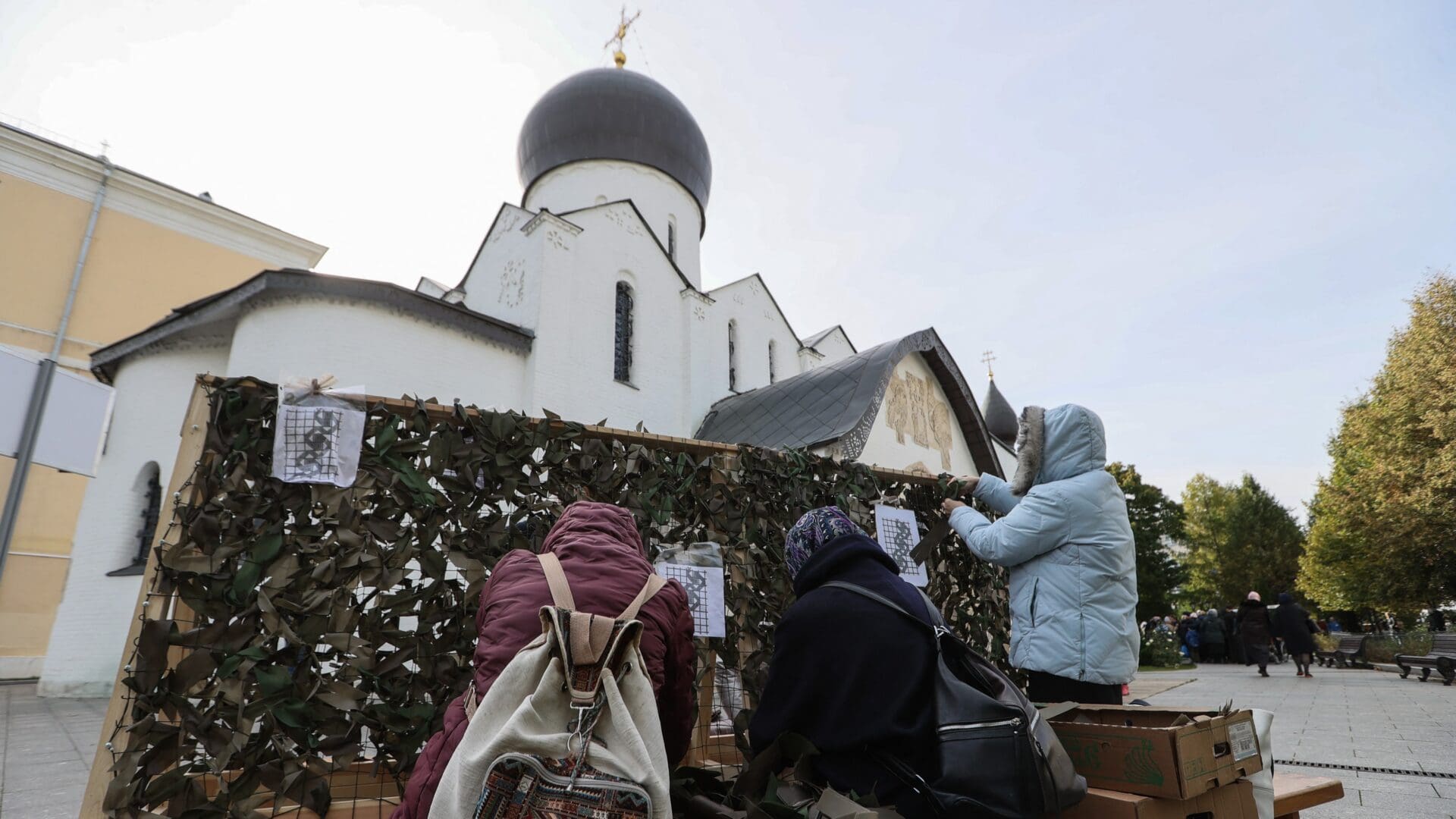The Danube Institute recently organized an event titled Why Ukraine Needs to Win the Russian-Ukraine War, with the participation of some of its new visiting scholars. David Satter, the distinguished Russia expert and visiting fellow at the Danube Institute, who also worked as the Moscow correspondent of The Financial Times, discussed the history of Russian–Ukrainian relations as well as the ongoing war.
In his keynote speech, David Satter compared the current situation in Ukraine with the one in the Middle East. He drew a parallel between the actions of Hamas against Israel and the ones of the Russian army. Then he highlighted important historical events to outline the context in which the recent events occurred. Satter argued that when the Bolsheviks reorganized the previous Tsarist Empire dividing it along national lines, the only one factor that united the more or less autonomous parts within the USSR was communist ideology. Towards the end of the Cold War, however, people gradually discovered the truth about the Holodomor and other atrocities and crimes committed by the Soviets, which gradually allowed nations living in the USSR to realize that the ultimate goal of their national community was not necessarily to reach communism. As a result of the loss of faith in the governing ideology, the Soviet Union broke up and a series of countries formed organized around titular nations. While in the first period after the collapse of the USSR Russian foreign policy was characterized by an acceptance and recognition of the newly independent states, and the leaderships made statements that Moscow had no issues with these sovereign states, and with, for instance, Ukraine joining Western alliances,
in 2013, with the start of the Maidan protests, everything rapidly changed.
Moscow dramatically changed its position on Ukraine, starting to perceive it as an inalienable part of the Russian sphere of influence and beginning to demonize Kyiv as Nazi.
Satter explained the dramatic shift in Russia’s foreign policy and attitude towards Ukraine with the values Russia upholds—which are much like the values it had during Soviet times in his view. The legacy of communism was carried over to today’s Russia, which, among other effects, resulted in a criminal takeover of the country. Over the years, Russia’s leadership has made it a habit to conceal crimes that it commits against its own people, Satter argued, stating that this is a behaviour that Moscow has followed in Ukraine as well. As Satter perceives Russia as fundamentally dishonest and corrupt, he rejected the idea that Ukraine and Russia can reach a cease fire. Not only because a cease fire would legitimize Russia’s territorial gains, but also because Russia cannot be trusted to keep the terms of the agreement, the Russia expert opined.
The second speaker, security and military policy expert, head of the MCC Centre for Geopolitics Attila Demkó agreed with some of the points raised by Satter and echoed the previous speaker’s scepticism about Moscow’s honesty. In his reflections, however, Attila Demkó also pointed out the mistakes Ukraine has made in the period since 2014, most specifically, the shift in its minority policy. Demkó highlighted that Ukraine is a multinational country and argued that Kyiv made a mistake in 2014 when it tightened its minority laws in response to the first conflict between Russia and Ukraine. It not only fuelled an unjust response from Russia, but also alienated some countries from acting as Kyiv’s natural allies.
After highlighting the issues with Kyiv’s minority policy that he characterized as a grave mistake on the Ukrainian part, Demkó went on arguing that
Ukraine has already secured a great victory in this war.
Demkó stressed that after Moscow’s failed attempt to create a puppet state, much like Belarus, out of Ukraine early in the war, Russia lost its chance to gain full control over Ukraine. Russia does not have the ability or military capabilities to control all of Ukraine’s territories, including the Western ones, at this point, he argued. In this sense, Demkó underscored, Russia has lost, while Ukraine has secured a victory. While Demkó acknowledged that if he was the Ukrainian president, he would share Zelenskyy’s sentiments about the need to retake Crimea, but as an analyst he believes that Ukraine already secured a victory when it prevented itself from becoming a second Belarus.
Demkó went on by highlighting that as of now, both sides are equally losing manpower in this war. Even if Ukrainian losses are not that visible in the media, they are heavy too. Furthermore, whilst Russia has only partially mobilized so far, Ukraine, a smaller country in terms of its population, has already fully mobilized. In other words, in terms of resources and manpower Ukraine is not on the winning side. Only the United States could have provided enough resources to Kyiv to truly achieve a military victory, but as the last one and a half years testify, the US did not give everything to Kyiv it could have. What is more, with new challenges arising in the Middle East, it is a question how long Ukraine will be continuing to receive Western support. In essence, Demkó argued that securing an even greater victory than what Ukraine has already attained is highly unlikely.








